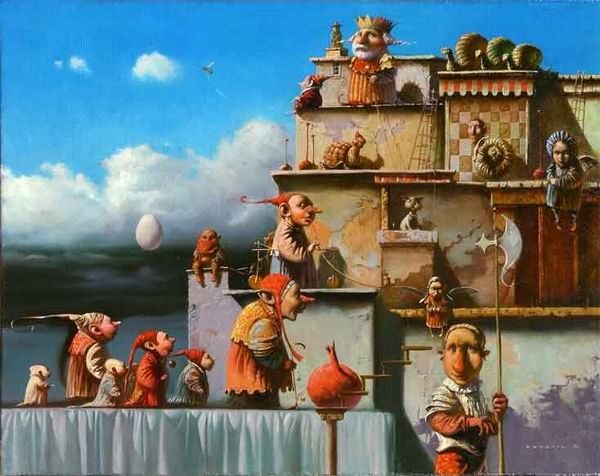
Chess Engines: Calculators of Doom or Crutches for the Clueless?
Sterile Silicon or Grandmaster Gold? The Battle for Your Chess Soul!
For an average player—someone who’s likely beyond the beginner stage but not yet at an advanced level—a Grandmaster’s commentary is generally far more beneficial than a sterile chess engine’s move analysis. Here’s why.
A chess engine spits out moves and evaluations—like “+0.3” or “Nf3”—based on raw calculation. It’s great at tactics, spotting immediate threats, or finding the best move in a vacuum, but it doesn’t explain why a move works or how it fits into a broader plan.
For an average player, who’s still building their understanding of the game, this can feel like being handed a map with no legend. Sure, you’ve got the “best” move, but without the ideas behind it—say, controlling the center, weakening the opponent’s king, or preparing a pawn break—you’re left mimicking without learning. Tactics alone are useful, but they’re just one piece of the puzzle, and over-relying on them can leave you clueless in quieter, strategic positions.
A Grandmaster’s commentary, on the other hand, is like a guided tour through the game’s landscape. They’ll break down the why: “This pawn push creates an outpost,” or “This knight retreat avoids a pin while eyeing a key square.” They weave in strategy—how to handle pawn structures, when to trade pieces, where to focus your attack—and human thoughts, like “Black might overestimate their counterplay here.” For an average player, this builds intuition and pattern recognition, which are critical for improvement. You’re not just memorizing moves; you’re absorbing principles you can apply in your own games.
Today you have a chance to compare how differently the chess engine and a Grandmaster see chess and think about it.
First, the engine.
You just saw the decisions and evaluation the chess engine was making based on its "thinking" at the points Alekhine gave his commentary of the game (see the game review below).
What did you learn from the engine's "commentary"? Did you grasp any new chess concept to help you improve? Has your understanding of chess advanced a notch?
Now, compare this with Alekhine's commentary from his Chess Course for Artur Pomar, where he played the role of teacher and coach for the first and only time. We can learn from his excellent (sometimes even paradoxical for the layman!) lessons to the young Artur Pomar (Vanessa Bristov @VOB96 has recently published the excellent Chess Prodigies Who Flopped - And Why article about the reasons why some excel in the future while others fail to live up to their great potential — Pomar is one of the four she looked at)

The Curso de ajedrez a Artur Pomar was originally published as part of the book ¡LEGADO! (Legacy), Madrid, Editorial Dossat, 1946, by Alexander Alekhine. The volume is today a classic and rare work in chess literature, since its first and only edition was published in Spanish and in Spain, a language and a country very distant and different from the culture of its author, but where he found a refuge to continue to live, until he died, the passion of his life: chess.
 Alekhine and Artur (proper spelling of his Catalan name) Pomar, 1944
Alekhine and Artur (proper spelling of his Catalan name) Pomar, 1944
The book was the result of an agreement by which Alekhine promised to give “the child Artur Pomar a complete chess course with the aim of perfecting and developing his technique, reflecting in an original, written in Spanish, the work developed, in the form of didactic lessons, noting the answers and comments of the student.”
.
Engines are tools, no doubt—perfect for checking your blunders or drilling tactics. But they’re cold and context-free. Grandmasters offer warmth and wisdom, teaching you how to think, not just what to play. For someone still climbing the ladder, that’s the real gold.
 Pomar vs Alekhine, Gijon 1944 (love the impressive clock monster
Pomar vs Alekhine, Gijon 1944 (love the impressive clock monster![]() )
)
Engines can suck it: Grandmasters drop the real chess bombs! Here are some game collections by the greats holding the keys to chess mastery! (For the full list, check Roaring Pawn's 101 Books of Chess)

.
.

